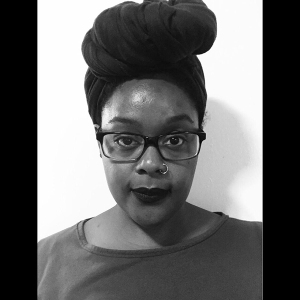by Erica Hughes
This is hell and I don’t mean that hyperbolic
—J. Cole in “4 Your Eyez Only”
If you really want to know about America, listen to the rappers.
In the last few years, Kendrick Lamar and J. Cole (just to name a couple), have put out hauntingly prophetic albums that offer a comprehensive framework for understanding America from the eyes of the poor, the black, and the imprisoned. While they rap about the external injustices of America in marginalized communities, Kendrick Lamar and J. Cole also rap about God. In fact, God is a vital character in their albums. According to J. Cole, God understands “The ignorance that make a n*** take his brother life/ The bitterness and pain that got him beatin on his wife”; and Kendrick Lamar says, “I’m f** up/ Homie, you f** up/ But if God got us then we gone be alright.”
These statements have profound theological and political implications.
***
A couple of week ago, I went to see the film Queen of Katwe with one of my good friends and her family. My good friend and her family are a part of the group white people who “get it.” With them, I never feel that I must hide my blackness to make them feel comfortable, and that’s hard to come by. But as the film began, I noticed that the theater was full of your average white, middle class families. It was interesting to me that they would come to see a movie about young Phiona—a black girl, one of four children born to a single mother, and a resident of Ugandan slums—who becomes a chess champion. As the film progressed, I watched many of these average, white families awe at how Phiona overcomes the circumstances of the slums—circumstances similar to living in an American housing project.
Although the film is set Uganda, Phiona’s story is as familiar as an old friend. I can tell you plenty of stories about poverty in America, about me and my siblings scrounging up literal nickels and dimes to buy a cheap pizza because we had no food, about the holes in my shoes, about molestation, about abortion, about sanitary pads being too expensive to buy and using toilet paper instead, about violence, about hopelessness, about going to my friends’ houses and their refrigerators being empty, about gangs, about the cockroaches and ants, about going to school with 3,000 other kids, about the sex and drugs, about not knowing how to read, about fatherless homes, about single moms working forty hours a week, about growing up too fast, and about the children who overcome all of this and more.
The difference between Phiona’s story and the black children in America is that Phiona is not the descendant of slaves—so white people believe her story and struggle, and they attempt to empathize with her. Black Americans rarely receive that from white people.
***
Too often, the privileged of American society—both elite white secularists and elite white Christians—understand themselves as separate from the struggles of minorities and poor people instead of seeing themselves (and their ancestors) in relation to these perpetually oppressed communities. Specifically, between the white community and the black community, white people choose not to see themselves as a part of a system that created the warzone in the Southside of Chicago, that crippled the economy in Cairo, Illinois, that keeps the majority of poor, black residents on the Westside of Fresno, California.
For many struggling, black communities, regardless of the region, the narrative is the same: We are struggling and trying to survive. J. Cole’s song “For Your Eyez Only” is rapped from the perspective of one of his deceased friends who writes an open letter to his daughter about the unfortunate and systemic circumstances of his life. At the end of the song, the perspective shifts back to J. Cole, and he says,
I dedicate these words to you and all the other children
Affected by the mass incarceration in this nation
That sent your pops to prison when he needed education
As I think about the American church (the Christians who will be offended by this post) and these prophetic words from J. Cole, the Holy Spirit reminds me that having faith in Christ is political and that Jesus agitated the religious leaders of his time by reclining with the ignored in society. Also I remember that God is not okay with the church’s willingness to ignore the inhuman circumstance of black people in America. God is not okay with the church’s willingness to turn a blind eye to dead little black boys. But I also remember that there is a Savior who is not unable to empathize with black Americans and that he sees and loves us—that our lives matter to him.
Erica Hughes is an alumna of Dordt College, is working toward her MFA in Creative Writing, Poetry at California State University, Fresno and teaches freshmen composition there as well. More importantly, Erica like reads too much for her own good.

